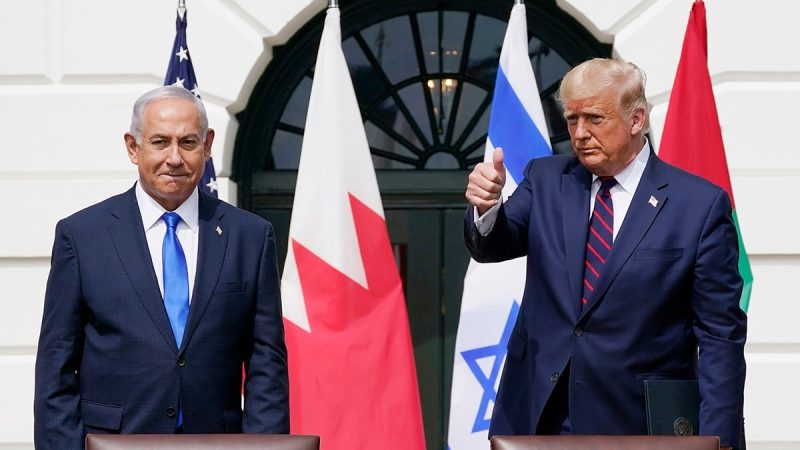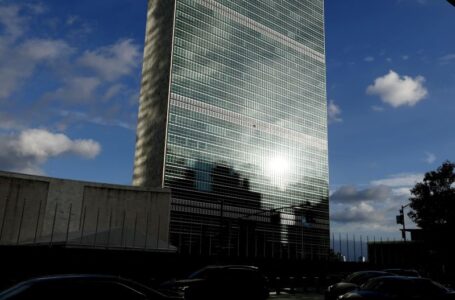Japanese Princess Yuriko, oldest member of imperial family, dies at 101
Netanyahu and Trump face similar ‘politicized prosecutions,’ legal expert says


JERUSALEM – After a Manhattan jury on Thursday convicted former President Trump of falsifying business records, legal experts have commented on the similarities between his case and the ongoing prosecution of Israeli Prime Minister Benjamin Netanyahu.
Israel’s then-attorney general, Avichai Mandelblit, charged Netanyahu with fraud, breach of trust and accepting bribes in a legal saga that started four years ago and is still unfolding. Netanyahu has flatly denied all the accusations against him.
Fox News Digital reached out to leading legal experts who are well versed in the hard-charging and no-holds-barred electoral and judicial systems in both democracies.
Eugene Kontorovich, a professor at George Mason University Scalia Law School and a scholar at the Kohelet Policy Forum, a Jerusalem think tank, told Fox News Digital, ‘Israel has always been the canary in the coalmine for threats to freedom and Western democracy. The politicized prosecutions on obscure and incomprehensible charges and victimless crimes that has been used on President Trump greatly resemble the prosecutions of Israeli Prime Minister Netanyahu. Israel’s situation is worse – Netanyahu was indicted four years ago after years-long investigations, making the prosecution a never-ending shadow on his political career.’
He added ‘Moreover, in Israel, prosecutors are not elected or even politically appointed, so there is not even the bitter consolation that both sides can play the same game.’
He continued, ‘But in what could be a good omen for Trump, Netanyahu’s political opponents thought the multiple criminal proceedings would end his political career, but instead he has gone on to win multiple elections because voters stopped taking the prosecutions seriously.’
Modern politics is filled with examples of court systems turned into blunt instruments to railroad politicians and dissidents who upset political parties and opponents.
Perhaps the most famous recent case is authoritarian Russian President Vladimir Putin’s imprisonment of his most potent political rival, Alexei Navalny, who was found dead in an Arctic penal colony in February. Putin’s critics claimed he was behind the killing. Russia’s opaque judiciary sentenced Navalny to a 19-year term for extremism. His defenders say he was persecuted by Putin because he was the first politician to build a national Russian opposition movement that seeks to end Putin’s more than two decades of control over Russia.
In 2023, the late-Italian Prime Minister Silvio Berlusconi was found not guilty of witness tampering in connection with alleged sex parties, called ‘bunga bunga,,’ at his villa in Milan. He claimed that his political enemies manufactured the sex scandal allegations.
The controversial Italian politician died last year. He referred to himself as the ‘Jesus Christ of politics.’ In 2013, however, Italy’s high court affirmed a conviction for tax fraud against Berlusconi.
The former Pakistani Prime Minister Imran Khan was ousted as the country’s leader in 2022 and sentenced to multiple prison terms for corruption, including leaking state secrets. Khan argues that the cases against him are politically motivated and his supporters have filled the streets of the Southeast Asian country to protest his incarceration.
Khan, a former cricket star who became an Islamist politician, is now facing 170 pending legal cases against him. The charges include terrorism, incitement to violence and graft. In March 2022, Khan claimed at a rally that a foreign conspiracy was working against him. He said a document showed that ‘all will be forgiven if Imran Khan is removed from power.’ A month later, Khan was dislodged as prime minister by a no-confidence vote in the parliament.
America’s former ambassador to Israel, David Friedman, who is a lawyer, told Fox News Digital, ‘The most important feature of a functioning democracy is its ability to instill confidence in the fairness of its judiciary. In the Trump case, the prosecution and the court have pursued a frivolous case and done enormous damage to our democracy. I am less familiar with the prime minister’s issues, but it is clear that in Israel there also exists a significant part of the population that is losing confidence in the judiciary.’
Friedman, who served during the Trump administration and played a key role in relocating the U.S. Embassy from Tel Aviv to Israel’s capital, Jerusalem, added, ‘This is always a byproduct of prosecuting political opponents. When done, the facts and the law must be compelling and even overwhelming. That’s clearly not present in either case.’











